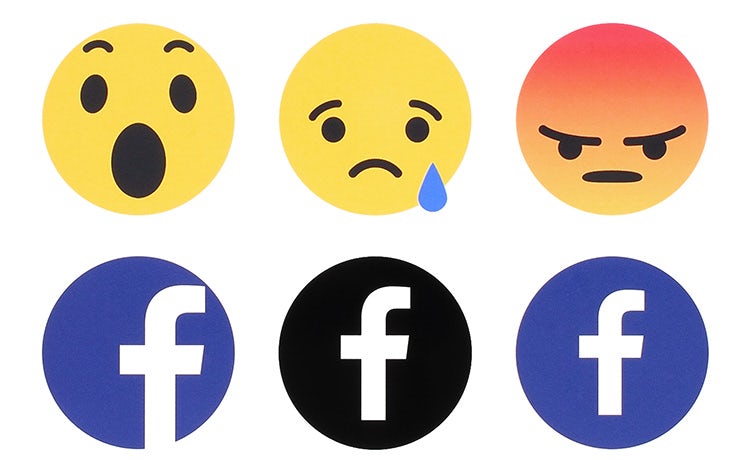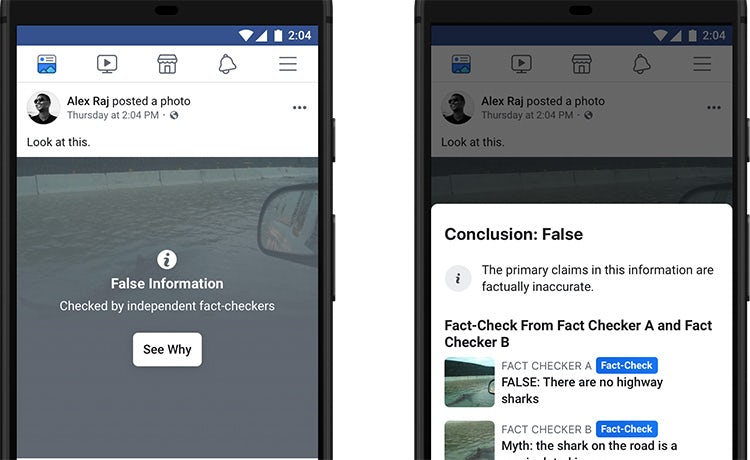
Facebook will not revise its targeting policies ahead of the UK general election, reaffirming its view that the transparency it provides on political advertising far exceeds that available in the offline world.
“Political targeting is nothing new,” stated Facebook head of UK public policy, Rebecca Stimson, speaking on a press call yesterday (7 November).
“Political parties target their voters and supporters all the time in the offline world and it’s worth remembering that what we do on Facebook is a far greater level of transparency than the level that is possible in any of those other means of campaigning at the moment.”
Stimson argued that political advertising on Facebook is “not a free for all”. She emphasised that the company has adopted an approach that has long been the consensus in the UK – namely that political speech is not regulated and what politicians say is held in the court of public opinion in full light of media scrutiny.
Despite these reassurances, this week a group of campaigners, academics and non-profit organisations issued a letter calling on Facebook and Google to ban political ads until after the general election in order to allow time for reform of online advertising rules.
The letter came after Facebook’s rivals Twitter and TikTok both banned political ads. While political ads only account for 0.5% of Facebook’s revenue, the social media giant is still not prepared to ban them outright.
The main bone of contention is Facebook’s decision to consider political posts as opinion pieces and satire, which are not eligible for verification. This includes pages that exist “with the primary purpose of expressing the opinion or agenda of a political figure”.
This means that claims from a political candidate or their campaign cannot be fact-checked and do not apply to policies designed to limit the spread of fake news.
If Facebook was really serious about change it would cut the political ads
Referring to the calls for a moratorium, Stimson argued that Facebook is too important a platform to simply ban political ads.
“Our view is it is such an important channel and it enables so many existing parliamentarians, campaigners and other challengers in this election to access advertising to communicate their message that it would be the wrong decision to pull it at this point in the process,” said Stimson.
“Obviously we’re expecting a discussion on electoral reform in general in the New Year and we will participate in that. The advertising you are seeing and what is available on our platform is much more transparent than say a leaflet or a billboard or any other campaign that might take place in this election.”
Stimson referenced a Conservative advert that provoked anger this week after the party was accused of doctoring a TV interview with shadow Brexit secretary Sir Keir Starmer, appearing to show him struggling to answer a question on Labour policy.
She confirmed the ad was allowed under Facebook policy precisely because advertising from political parties and political candidates are not subject to fact-checking rules.
“What the Conservative Party put in their advert has been the subject of ferocious public debate and discussion precisely because people could see it was there and it was made more transparent by our policies,” Stimson argued.
Facebook, she said, treats ads as political speech, distinct from free speech policies, as these campaigns are central to democratic processes around the world.
A question of transparency
Facebook has spent the past couple of weeks talking up the strength of its transparency policies around political advertising and misinformation.
Currently, anyone posting a political ad in the UK must go through a “verification process” and provide ID documents to prove who they are and that they live in Britain. Political ads are labelled and put into Facebook’s ad library for seven years as a point of reference.
The advertising you are seeing and what is available on our platform is much more transparent than a leaflet or a billboard that might take place in this election
Rebecca Stimson, Facebook
On the call, Facebook insisted it does not embed members of its teams into political parties and discussed its decision to open a dedicated operations centre to monitor political advertising across its platforms in the run up to the general election.
As yet there are no plans to rollout a UK version of the presidential spend tracker recently introduced for the 2020 US election. However, this week Facebook did introduce a new tool to warn people when they come across content that is deemed to be “illegal, false, or partly false” by its independent fact-checking partners.
Users will now see a grey screen sitting over a post, which reads ‘false information’ and points people to the fact-checkers’ articles debunking the claims.

Across Facebook there are more than 35,000 people working on safety and security sitting across 40 teams, 500 of whom are focused on elections.
The company’s head of cybersecurity policy, Nathaniel Gleicher, explained that Facebook wants its experts working on multiple elections so they can apply what they learn to the next vote.
“We’ve had people focused and thinking about challenges that might emerge in the UK for some time, but one of our key goals is we want to bring the people who have learned from protecting the Canadian election, the Argentinean election, the Indian election and the mid-terms in the US, and make sure they can bring all that insight to protect the UK,” said Gleicher.
“We have a broad elections team that deals with these threats across countries and core people that focus as the challenge gets closer.”
He admitted that Facebook will not be able to catch everything appearing on its platform and understanding this is a core part of the strategy, which is why it is important to engage people outside the organisation.
Gleicher added: “Transparency means that even the ones we do miss we can be held accountable for that and being held accountable in that way may not always be comfortable, but it’s really important that as many eyes and as many experts can engage with this as possible.”







